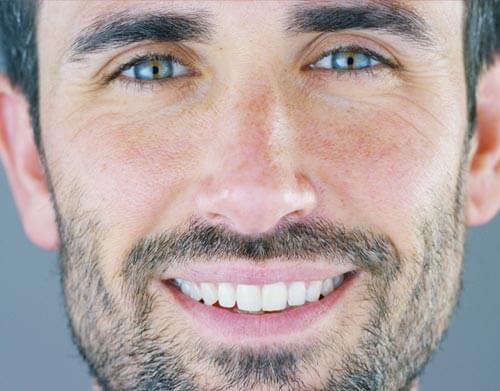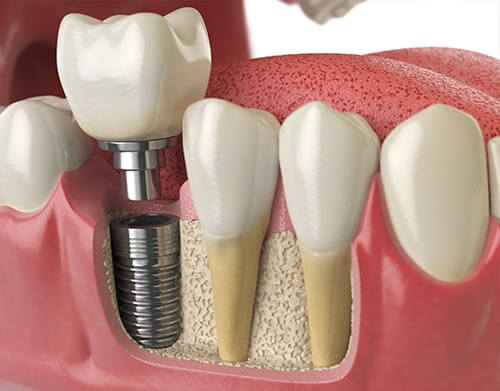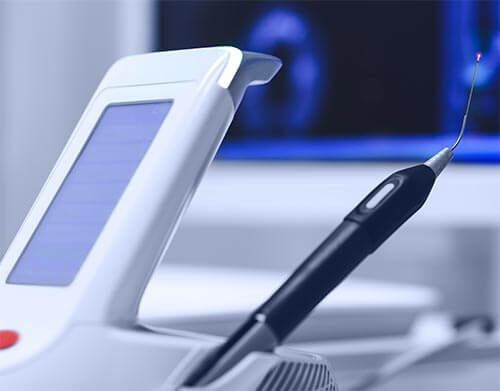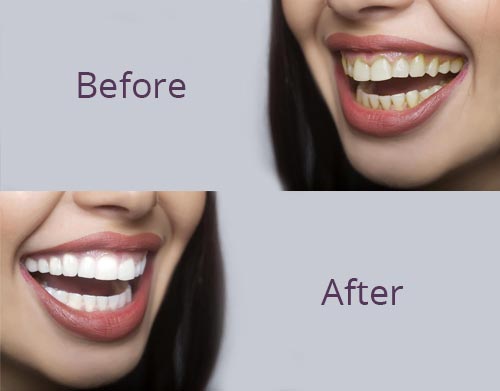Dental Library
Welcome to our health education library. The information shared below is provided to you as an educational and informational source only and is not intended to replace a medical examination or consultation, or medical advice given to you by a physician or medical professional.
Wisdom Teeth: Your Treatment Plan
If one or more of your wisdom teeth are likely to cause problems,�your surgeon may recommend removal. This can relieve your symptoms and protect your dental health. In some cases, you may be advised to wait or to try other treatments first.
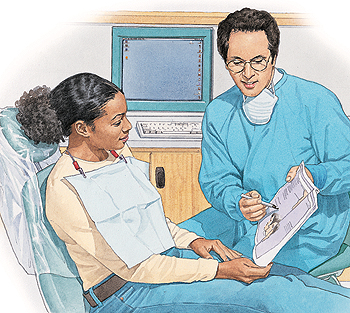
Early Removal Is Often Recommended
Your surgeon may advise removing the wisdom teeth now, even if you have no symptoms. This is because�wisdom teeth roots mature and become more firmly anchored to the bone as you age. This makes removal more difficult. It also increases the risk of complications. And people heal more slowly as they grow older.
Other Options May Be Possible
The position of wisdom teeth roots may make removal�unwise. Or surgery may not be recommended because of another health problem. Other options include:
-
Close follow-up. �Regular exams and x-rays check for signs of complications.
-
Medications.�These can be used to control some symptoms and treat infections.
-
Minor surgery. In some cases a procedure such as an�operculectomy (removal of gum tissue overlapping the tooth) may help.
Risks and Complications of Wisdom Tooth Removal
Any surgical procedure has risks. The risks of wisdom teeth removal�vary depending on your age and the position of the teeth. Risks include:
-
Sore joints and muscles.�Jaw soreness, bruising, or swelling is normal after removal. Problems with the jaw joint or difficulty opening the mouth fully can also occur. These problems often heal in a week or two. But sometimes they last longer and require treatment.
-
Dry socket.�After surgery, a blood clot fills the extraction site. A clot that dissolves or dislodges too soon after surgery can cause pain and slow recovery. Dry socket is treated with a special dressing.
-
Infection.�This is often treated with antibiotics or by draining the infection.
-
Side effects of anesthesia.�Sedation or general anesthesia can cause nausea, sore throat, and other side effects.
-
Sinus problems.�The maxillary sinus cavity may be entered during surgery. This can require further treatment.
-
Nerve injury.�This can cause loss of taste or areas of numbness, tingling, or pain in the teeth, gum, tongue, or lips. In most cases, the nerve heals over time, but further treatment may be needed.
-
Weakening of the jaw.�If bone has been removed, the jawbone may become more prone to fracture.
Date Last Reviewed:
Date Last Modified:
When you need exceptional and comprehensive smile care, trust Lebowitz Dental Associates. Learn more about our money-saving deals. Call us today at 602.264.2905 or fill out our online Request an Appointment form to schedule your consultation with us.
Our Services
Fangs for Friends
The purpose of Fangs for Friends is to instill confidence in the community through oral health. We believe that by aiding people to develop confidence in their smile, we can help individuals make their own impact in the community.
Click Here to learn about Fangs for Friends.














